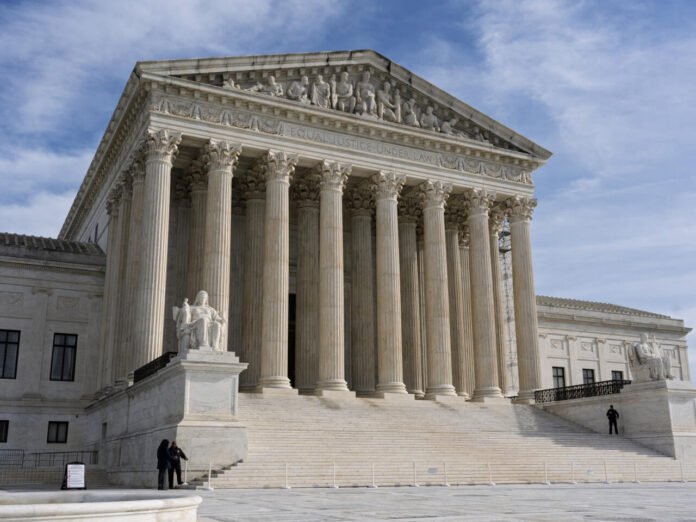The Supreme Court greenlights Trump’s deportation policy in a major 6-3 decision, overturning a lower court order that had blocked rapid removals. Consequently, the Biden administration can now resume sending migrants to third countries, even if they face potential danger there.
Previously, a federal judge had mandated that migrants receive a “meaningful opportunity” to contest their deportations. Specifically, Judge Brian Murphy ruled that officials must assess risks of torture or persecution in third countries. However, the Supreme Court swiftly reversed this decision, siding with the Trump administration.
Meanwhile, the court’s three liberal justices Sotomayor, Kagan, and Jackson vehemently dissented. They accused the majority of “rewarding lawlessness” and disregarding migrant safety. Justice Sotomayor argued that the ruling “exposes thousands to violence in far-flung locales.
The case centers on eight migrants from Myanmar, South Sudan, Cuba, and other nations. Although the government labeled them “the worst of the worst,” their lawyers disputed this claim. In fact, many had no criminal convictions, yet they were still deported to Djibouti.
Following the ruling, the Department of Homeland Security hailed the decision. Spokeswoman Tricia McLaughlin declared, “Fire up the deportation planes,” signaling a swift enforcement push. The agency insists the policy prioritizes “the safety and security of the American people.”
Conversely, immigrant rights groups slammed the ruling. Trina Realmuto of the National Immigration Litigation Alliance called it “horrifying,” warning of “torture and death” for affected migrants. Advocates stress that many face extreme risks if deported to unstable regions.
Notably, this is not the first time the Supreme Court has backed Trump’s hardline immigration agenda. Last month, justices allowed the termination of Temporary Protected Status for Venezuelans. Similarly, in May, they upheld the pause on a humanitarian parole program.
As the Supreme Court greenlights Trump’s deportation policy, legal battles will likely intensify. Human rights organizations may challenge individual removals, while the administration pushes forward. Ultimately, the ruling reignites debates over due process and migrant protections.
In summary, the Supreme Court greenlights Trump’s deportation policy, marking a pivotal shift in U.S. immigration enforcement. While officials celebrate enhanced removal powers, critics warn of dire humanitarian consequences ahead.
For more political updates, visit DC Brief.


